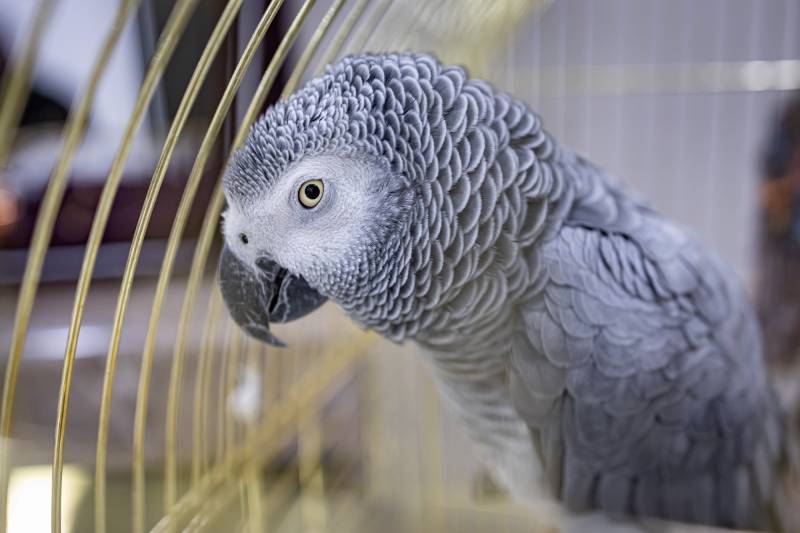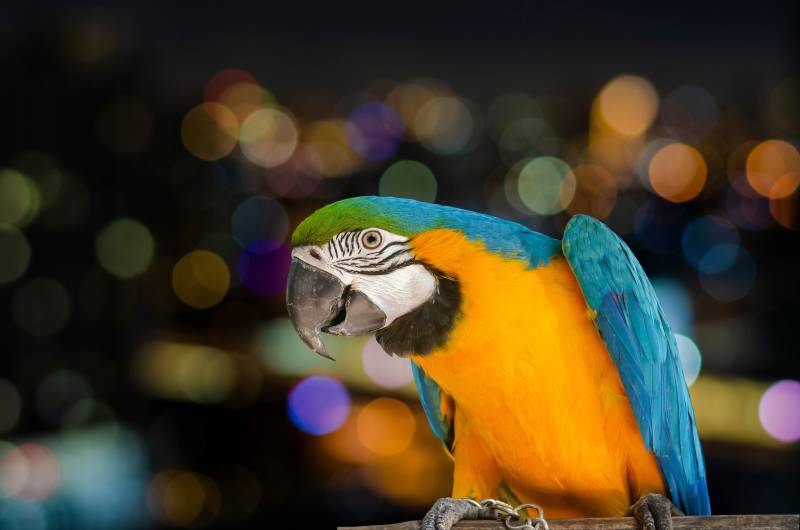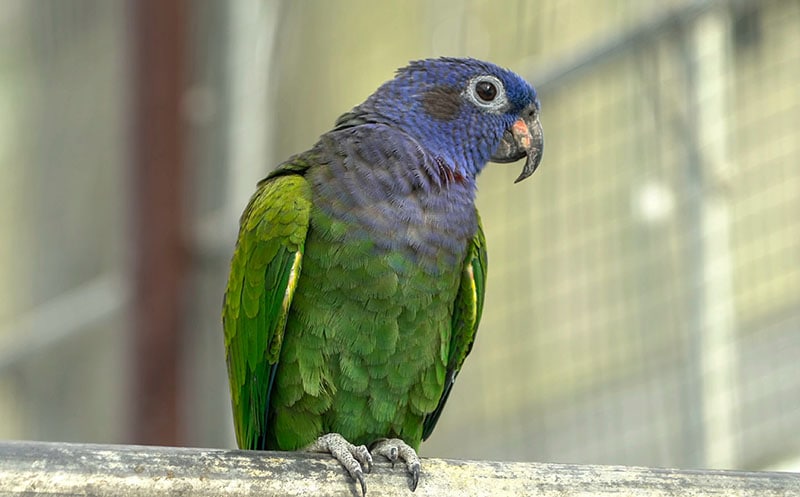What To Do If You Find a Baby Bird: 7 Vet Approved Tips
Updated on

The spring and summer months are just around the corner, and with them comes the nesting season for most birds. Unfortunately, baby birds don’t have great odds, and around 60% to 70% of nests won’t survive.1 So, if you come across a seemingly abandoned or injured baby bird on your nature walk or in your backyard, you probably want to do all you can to help ensure its survival.
If you’ve found an abandoned baby bird, you must know how to care for it properly to give it the best chance of survival. Read on to learn more.
The 7 Things to Do If You Find a Baby Bird
1. Don’t Touch It
Upon coming across an abandoned baby bird, your first instinct might be to pick it up and take it somewhere safe. Unfortunately, this isn’t the best thing to do in every situation, as you need to consider several factors to determine if the bird you’ve found needs human intervention.

2. Determine Its Approximate Age
You need to determine whether the bird you’ve found is a nestling or a fledgling before you can take any steps to help it.
It’s essential to know its approximate age since many bird species will jump from their nests even if they’re not entirely ready to fly yet. These species will then explore the ground, hopping around and learning to forage with their parents monitoring them from a few feet away.
Nestlings
Nestlings will have very few or no feathers at all. If you’ve found them on the ground, it’ll need help. These birds are far too young to leave the nest alone and cannot fly.
Fledglings
Fledglings are juvenile birds with a mix of fuzzy down and adult feathers. Once young birds are in the fledgling stage, they’re already starting to learn to fly. You might see them hopping on the ground or perching on low branches, all normal and natural behaviors that fledglings do to learn about life.
You do not need to “rescue” a fledgling from its natural environment, provided it’s healthy. Leave it be and let mom watch over them.
3. Determine if It’s Injured
Nestlings
If it is a nestling and it is uninjured, try to locate the nest. DIY one from a small basket or kitchen strainer if you cannot find it. Try to make it bowl-shaped and pad it well with tissue paper. Fasten your makeshift nest in a sheltered area of a tree close to where you found the bird. Monitor it from a distance for several hours to see if the parents return.
Fledglings
Signs that a fledgling is in danger or needs help include:
- Wounds
- Wet or droopy feathers
- Non-weight-bearing legs
- Head tilting
- Cold and shivering
- In the wide open

4. Determine if It’s Orphaned or at Risk
Birds, both nestlings and fledglings, can sometimes become orphans. Their parents may have been killed by predators or died via a window strike. In these cases, collecting the bird and turning them in to a local wildlife rehabilitation center is best.
Next, contact your local wildlife rehabilitation center to arrange transportation for the fledgling to a licensed facility. Ideally, you wouldn’t have the bird in your possession for more than 24 hours.
If the bird is in imminent danger due to nearby predators or a damaged nest, it will need immediate help. See point six for collecting birds.
5. Put Nestlings Back
If you’ve found the nestling on the ground, look for its nest in the bushes or trees nearby. If you locate it, you can put it back in the nest and the parents should resume care.
There used to be a school of thought that touching a baby bird would make its parents reject it. This has been proven false. Bird parents are typically very devoted to their young and unlikely to abandon their chicks over humans fiddling with them.

6. Collecting Birds
You must collect it carefully if you’ve determined that the bird has been orphaned or is injured. Put on gloves and put the bird inside a cardboard box lined with paper towels.
7. Caring for Baby Birds While You Wait
It may take several hours or, even worse, days for the wildlife rehabilitation center to come to your home to collect the baby bird. If this is the case, you must care for the chick while you wait.
Keep It Warm
Keep the baby warm by putting the box on top of a heating pad on the lowest setting. Then, put it in a quiet, warm room away from other people or animals. If you use a clear container to house the bird, place a towel over the top to keep it dark.
Do Not Give Food or Water
If the bird is injured or has issues standing, it could fall into a water dish, potentially causing hypothermia or drowning. Force-feeding water can cause the liquid to wind up in the animal’s lungs, possibly leading to pneumonia or death.
Feeding the chick is not also recommended. If it is fed improperly, baby birds can choke and be put at risk of developing respiratory infections or even dying. It’s also almost impossible to know exactly what foods the bird needs as not all species will eat the same foods. If you need to feed the bird, speak with a professional before giving any food or drink.
The one exception to this rule is if the bird you’ve rescued is a hummingbird, as they have very high metabolisms. These tiny birds eat up to three times their body weight daily, feeding every 10 to 15 minutes.
If you’ve rescued a hummingbird, mix 1 part sugar with 4 parts water. Dip a Q-tip or straw in the mixture and let the bird drink the droplet.

Final Thoughts
Finding a baby bird triggers a compassionate response from us, but often, the best thing we can do for these helpless birds is to leave them alone. You should only intervene if necessary, like if the bird is injured, orphaned, or in immediate danger from predators.
As sad as it is, baby chick mortality is extremely high. Only one-third of the birds that reach the fledgling stage will survive until next spring, so only the healthiest and strongest chicks will survive even without us stepping in to intervene.
Featured Image Credit: Vinson Tan, Pixabay












